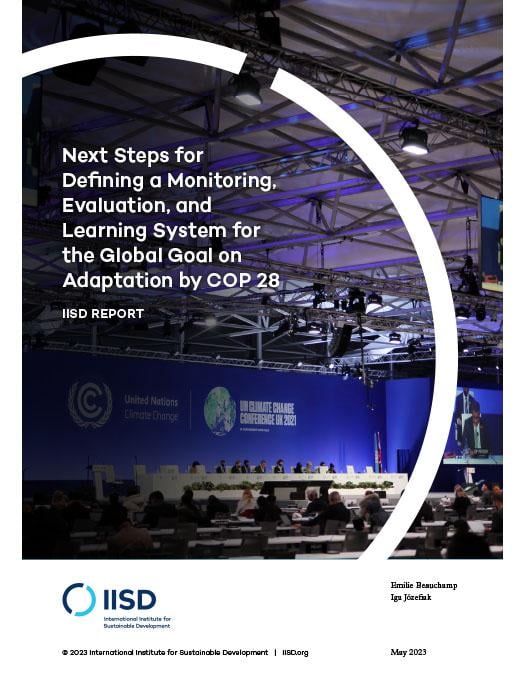
Next Steps for Defining a Monitoring, Evaluation, and Learning System for the Global Goal on Adaptation by COP 28
In 2015, the Paris Agreement marked a global change in the commitment of countries to address adaptation, capturing the need to increase its visibility and support for it. As part of the efforts to bring adaptation “on parity” with mitigation, parties established the Global Goal on Adaptation (GGA) to serve as an overarching aspiration to raise ambitions and accelerate collective actions on adaptations. In other words, the GGA implicitly involves the conceptual and methodological framework through which countries and the United Nations Framework Convention on Climate Change (UNFCCC) will conduct the monitoring, evaluation and learning (MEL) of adaptation under the Paris Agreement.
This report aims to support government stakeholders and other non-state actors involved in the negotiations on the GGA by providing non-prescriptive and pragmatic directions for finalizing a GGA framework by COP 28. This report first provides an overview of key concepts and elements needed under monitoring, evaluation, and learning (MEL) frameworks, along with examples and relevant conceptualizations of the GGA for actors to advance their understanding and views of the prospective GGA framework. This will also provide a basis for language and ideas with which parties can engage.
Related content
- Five Ways the Global Goal on Adaptation Can Help Build a Global Monitoring, Evaluation, and Learning System for Adaptation by COP 28
- How to Raise the GlaSS on the Global Goal on Adaptation at COP 27: Four foundations to build upon
Publisher: International Institute for Sustainable Development